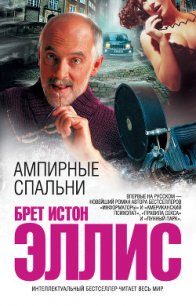The Dain Curse - Hammett Dashiell (чтение книг TXT) 📗
By this time Fitzstephan had hit his stride. He looked on Gabrielle now as his property, bought with the deaths he had caused. Each death had increased her price, her value to him. When Eric carried her off and married her, Fitzstephan hadn't hesitated. Eric was to be killed.
Nearly a year before, Fitzstephan had wanted a quiet place where he could go to finish a novel. Mrs. Fink, my village-blacksmith, had recommended Quesada. She was a native of the village, and her son by a former marriage, Harvey Whidden, was living there. Fitzstephan went to Quesada for a couple of months, and became fairly well acquainted with Whidden. Now that there was another murder to be done, Fitzstephan remembered Whidden as a man who might do it, for a price.
When Fitzstephan heard that Collinson wanted a quiet place where his wife could rest and recuperate while they were waiting for the Haldorns' trial, he suggested Quesada. Well, it was a quiet place, probably the quietest in California. Then Fitzstephan went to Whidden with an offer of a thousand dollars for Eric's murder. Whidden refused at first, but he wasn't nimble-witted, and Fitzstephan could be persuasive enough, so the bargain had been made.
Whidden bungled a try at it Thursday night, frightening Collinson into wiring me, saw the wire in the telegraph office, and thought he had to go through with it then to save himself. So he fortified himself with whiskey, followed Collinson Friday night, and shoved him off the cliff. Then he took some more whiskey and came to San Francisco, considering himself by this time a hell of a desperate guy. He phoned his employer, saying: "Well, I killed him easy enough and dead enough. Now I want my money."
Fitzstephan's phone came through the house switchboard: he didn't know who might have heard Whidden talking. He decided to play safe. He pretended he didn't know who was talking nor what he was talking about. Thinking Fitzstephan was double-crossing him, knowing what the novelist wanted, Whidden decided to take the girl and hold her for, not his original thousand dollars, but ten thousand. He had enough drunken cunning to disguise his handwriting when he wrote his note to Fitzstephan, not to sign it, and to so word it that Fitzstephan couldn't tell the police who had sent it without explaining how he knew who had sent it.
Fitzstephan wasn't sitting any too pretty. When he got Whidden's note, he decided to play his hand boldly, pushing his thus-far-solid luck. He told me about the phone-call and gave me the letter. That entitled him to show himself in Quesada with an excellent reason for being there. But he came down ahead of time, the night before he joined me, and went to the marshal's house to ask Mrs. Cotton-whose relation to Whidden he knew-where he could find the man. Whidden was there, hiding from the marshal. Whidden wasn't nimble-witted, and Fitzstephan was persuasive enough when he wanted to be: Fitzstephan explained how Whidden's recklessness had forced him to pretend to not understand the phone-call. Fitzstephan had a scheme by which Whidden could now collect his ten thousand dollars in safety, or so he made Whidden think.
Whidden went back to his hiding-place. Fitzstephan remained with Mrs. Cotton. She, poor woman, now knew too much, and didn't like what she knew. She was doomed: killing people was the one sure and safe way of keeping them quiet: his whole recent experience proved it. His experience with Leggett told him that if he could get her to leave behind a statement in which various mysterious points were satisfactorily-and not too truthfully-explained, his situation would be still further improved. She suspected his intentions, and didn't want to help him carry them out. She finally wrote the statement he dictated, but not until late in the morning. His description of how he finally got it from her wasn't pleasant; but he got it, and then strangled her, barely finishing when her husband arrived home from his all-night hunt.
Fitzstephan escaped by the back door-the witnesses who had seen him go away from the house didn't come forward until his photograph in the papers jogged their memories-and joined Vernon and me at the hotel. He went with us to Whidden's hiding-place below Dull Point. He knew Whidden, knew the dull man's probable reaction to this second betrayal. He knew that neither Cotton nor Feeney would be sorry to have to shoot Whidden. Fitzstephan believed he could trust to his luck and what gamblers call the percentage of the situation. That failing, he meant to stumble when he stepped from the boat, accidentally shooting Whidden with the gun in his hand. (He remembered how neatly he had disposed of Mrs. Leggett.) He might have been blamed for that, might even have been suspected, but he could hardly have been convicted of anything.
Once again his luck held. Whidden, seeing Fitzstephan with us, had flared up and tried to shoot him, and we had killed Whidden.
That was the story with which this crazy man, thinking himself sane, tried to establish his insanity, and succeeded. The other charges against him were dropped. He was sent to the state asylum at Napa. A year later he was discharged. I don't suppose the asylum officials thought him cured: they thought he was too badly crippled ever to be dangerous again.
Aaronia Haldorn carried him off to an island in Puget Sound, I've heard.
She testified at his trial, as one of his witnesses, but was not herself tried for anything. The attempt of her husband and Fitzstephan to kill her had, for all practical purposes, removed her from among the guilty.
We never found Mrs. Fink.
Tom Fink drew a five-to-fifteen-years jolt in San Quentin for what he had done to Fitzstephan. Neither of them seemed to blame the other now, and each tried to cover the other up on the witness stand. Fink's professed motive for the bombing was to avenge his step-son's death, hut nobody swallowed that. He had tried to check Fitzstephan's activities before Fitzstephan brought the whole works down on their ears.
Released from prison, finding himself shadowed, Fink had seen both reason for fear and a means to safety in that shadow. He had back-doored Mickey that night, slipping out to get the material for his bomb, and then in again, working all night on the bomb. The news he had brought me was supposed to account for his presence in Quesada. The bomb wasn't large-its outer cover was an aluminum soap container wrapped in white paper-and neither he nor Fitzstephan had had any difficulty in concealing it from me when it passed between them during their handshaking. Fitzstephan had thought it something Aaronia was sending him, something important enough to justify the risk in sending it. He couldn't have refused to take it without attracting my attention, without giving away the connection between him and Fink. He had concealed it until we had left the room, and then had opened it-to wake up in the hospital. Tom Fink had thought himself safe, with Mickey to testify that he had shadowed him from the time he had left the prison, and me to account for his behavior on the scene of the bombing.
Fitzstephan said that he did not think Alice Leggett's account of the killing of her sister Lily was the truth, that he thought she-Alice-had done the killing herself and had lied to hurt Gabrielle. Everybody took it for granted that he was right-everybody, including Gabrielle-though he didn't have any evidence to support what was after all only his guess. I was tempted to have the agency's Paris correspondent see what he could dig up on that early affair, but decided not to. It was nobody's business except Gabnielle's, and she seemed happy enough with what had already been dug up.
She was in the Collinsons' hands now. They had come to Quesada for her as soon as the newspapers put out their first extra accusing Fitzstephan of Eric's murder. The Collinsons hadn't had to be crude about it-to admit that they'd ever suspected her of anything: when Andrews had surrendered his letters testamentary, and another administrator-Walter Fielding-had been appointed, the Collinsons had simply seemed to pick her up, as was their right as her closest relations, where Andrews had put her down.




